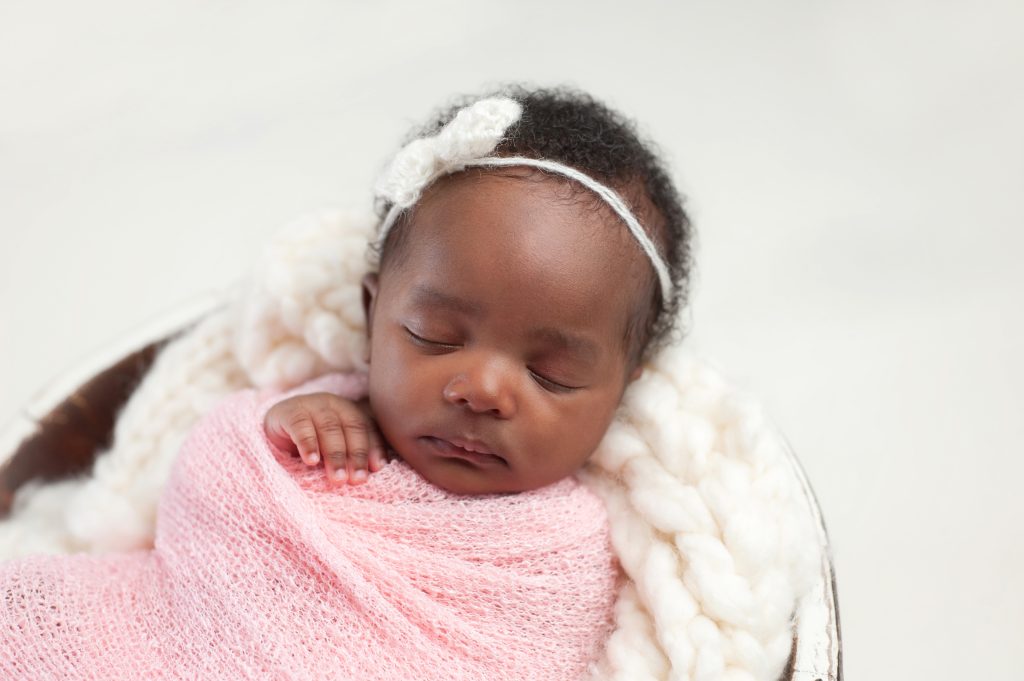Throughout history, the naming conventions of the rich and noble have significantly influenced the names chosen by those from less affluent backgrounds. This phenomenon, where names trickle down from the upper echelons of society to become popular among the general population, highlights the impact of cultural and social dynamics on naming practices. In this article, we explore 15 baby names that have made this journey from the drawing rooms of the wealthy to the homes of the everyday person.
1. Charlotte
Originating from French royalty, Charlotte is a name that has found its way into the hearts of many across different social strata. It gained popularity in England and other parts of the world following its association with Queen Charlotte, the wife of King George III. The name conveys a sense of elegance and sophistication, attributes that made it desirable among the upper classes. Over time, Charlotte became a favorite among the wider population, cherished for its timeless beauty and royal connotations. Today, it remains a popular choice for parents seeking a name with a rich historical background and a noble flair.
2. Edward
Edward, a name borne by several kings of England, epitomizes the transfer of regal tradition to the masses. Its Old English origins, meaning “wealth, fortune; guard,” resonate with the noble qualities of leadership and protection. The name’s popularity persisted through the ages, bolstered by its royal connections, including Edward VIII, who abdicated the throne for love. Its classic and strong sound appeals to many parents outside the aristocracy, making Edward a common choice for their sons. This enduring appeal ensures Edward remains a timeless selection, bridging the gap between historical grandeur and contemporary appeal.
3. Eleanor
Eleanor, a name of French and English royalty, signifies the spread of aristocratic elegance to wider society. It was popularized by Eleanor of Aquitaine, one of the most powerful and influential figures of the Middle Ages. The name’s appeal lies in its association with strength, intelligence, and beauty, qualities admired by both the nobility and the public. Over the centuries, Eleanor has been embraced by parents from various socioeconomic backgrounds, drawn to its noble origins and the remarkable women who bore it. Today, Eleanor continues to be celebrated for its classic beauty and rich heritage, making it a sophisticated choice for a daughter.
4. Alexander
Alexander, a name of Greek origin meaning “defender of the people,” has been borne by kings and emperors throughout history, most notably Alexander the Great. Its noble connotations and timeless appeal made it a favored name among the elite. As stories of Alexander the Great’s conquests and achievements spread, so did the popularity of the name beyond the corridors of power. It has since become a popular choice for boys among families of all backgrounds, admired for its strong and heroic resonance. Alexander represents the blending of historical magnificence with universal appeal, making it a perennial favorite.
5. Victoria
Victoria, a name derived from the Latin for “victory,” is indelibly associated with the British Queen Victoria and the era of prosperity and innovation her reign represents. The name’s regal bearing and association with triumph made it popular among the aristocracy and newly affluent families of the 19th century. As the queen’s influence extended beyond Britain, so did the appeal of her name, becoming a symbol of elegance and strength across the globe. Today, Victoria is chosen by parents from diverse backgrounds, who appreciate its noble roots and the timeless quality it bestows upon their daughters. It epitomizes the transition of a name from royal palaces to the homes of people worldwide, maintaining its dignity and allure.
6. William
William, with its origins in Germanic words meaning “will helmet” or “protection,” has been a staple among European royalty, including the English monarchy. The name’s popularity soared with figures like William the Conqueror, setting a precedent for leadership and strength. Its noble aura, combined with a versatile and enduring charm, has made William a preferred name among all social classes. Over the centuries, it has remained a constant, signifying the blend of tradition and accessibility that characterizes names of regal origin. William’s widespread popularity ensures it continues to be a top choice for boys, embodying a rich history while being perfectly suited for the modern world.
7. Elizabeth
Elizabeth, derived from the Hebrew for “God is my oath,” boasts a royal pedigree stretching back to the biblical Elizabeth and encompassing queens of England. Its association with Elizabeth I, the “Virgin Queen,” and the current Queen Elizabeth II, has cemented its status as a name of dignity and grace. The timeless appeal of Elizabeth has transcended social divides, becoming a favorite for its elegance and the strength of character it suggests. Its versatility, with numerous nicknames and variations, has made it accessible and beloved by many. Elizabeth exemplifies how a name can embody royal majesty while appealing to a broad audience, making it a perennial favorite.
8. Henry
Henry, a name of German origin meaning “home ruler,” has been borne by numerous kings throughout history, including eight English monarchs. Its royal connotations, coupled with a sense of strength and reliability, have made it a favored choice among the nobility. Over time, Henry’s appeal broadened, attracting parents from various backgrounds seeking a name with historical depth and a noble air. Its enduring popularity is a testament to the name’s ability to blend tradition with a timeless, approachable charm. Henry continues to be a popular choice, representing the seamless transition of a regal name to widespread acceptance.
9. Catherine
Catherine, with roots in the Greek word for “pure,” has been a name of empresses and queens across Europe, symbolizing elegance and nobility. Its association with figures like Catherine the Great of Russia highlighted its connection to power and intellect. The name’s versatility and international appeal have made it a popular choice beyond the aristocracy, embraced for its timeless beauty and strong historical lineage. Catherine remains a favored name for its ability to convey a sense of sophistication and classic grace, appealing to a wide range of parents today. It showcases the enduring influence of royal names on broader naming trends.
10. Arthur
Arthur, a name steeped in legend and royalty, particularly through its association with King Arthur and the Knights of the Round Table, carries connotations of chivalry and nobility. Its mythical and historical resonance made it a prestigious choice among the elite, symbolizing leadership and valor. Over time, Arthur’s appeal extended beyond the aristocratic circles, capturing the imaginations of parents looking for a name with depth and character. Today, Arthur enjoys renewed popularity, embraced for its vintage charm and the timeless qualities it represents. It exemplifies how legendary names can traverse social boundaries, becoming cherished by many.
11. Margaret
Margaret, derived from the Greek for “pearl,” is a name that has been borne by saints, queens, and noblewomen, symbolizing purity and beauty. Its royal associations, particularly in Scotland and England, have made it a name of distinction and grace. Over centuries, Margaret’s appeal has broadened, becoming a popular choice for its classic elegance and strength. It has a rich history of use among various social classes, reflecting its ability to transcend its noble origins. Margaret remains a testament to the enduring appeal of names that combine historical depth with a sense of timeless beauty.
12. George
George, from the Greek word for “farmer,” became royal with Saint George, the patron saint of England, and has been a popular name among British royalty. Its association with qualities of bravery and loyalty made it a revered choice among the aristocracy. As the name of kings and princes, George’s noble allure spread, becoming a favored name among the wider populace for its strong and classic connotation. Today, George continues to be a popular choice, embodying the blend of tradition and universality that marks the journey of royal names into the public domain. It signifies the widespread appeal of names that carry a rich historical and cultural significance.
13. Sophia
Sophia, meaning “wisdom” in Greek, has been a name of choice for European royalty, reflecting qualities of intelligence and grace. Its regal connections, combined with its beautiful sound and meaning, have made it a favorite among those seeking a name with depth and elegance. Over time, Sophia’s popularity has extended beyond the elite, appealing to a broad audience for its universal charm and sophistication. It remains a sought-after name, embodying the seamless transition of elegance from the palaces to the people, cherished for its blend of beauty and wisdom.
14. Louis
Louis, a name with French and German roots meaning “famous warrior,” has been borne by eighteen kings of France and other monarchs, embodying the essence of leadership and strength. Its royal prestige and timeless appeal made it a popular choice among the nobility and, eventually, among people from all walks of life. The name’s rich historical connotations and classic elegance have made it a favorite, symbolizing a bridge between noble tradition and contemporary popularity. Louis continues to be a top choice for parents valuing a name with a strong historical legacy and a noble bearing.
15. Alice
Alice, derived from the Old French for “noble,” has been a favorite in royal circles, notably among the British royal family. Its association with nobility and grace made it a prestigious choice, while its simplicity and charm have broadened its appeal. Over the years, Alice has become a beloved name across different social classes, appreciated for its timeless elegance and gentle strength. It symbolizes the ability of a name to traverse social divides, embodying a blend of nobility and accessibility that appeals to many. Alice stands as a testament to the enduring appeal of names that carry a sense of history and dignity, making it a cherished choice for daughters around the world.
The Journey
The journey of these 15 names from the corridors of power to the broader society illustrates the profound influence of the rich and noble on naming conventions. It showcases how names that once symbolized wealth, power, and exclusivity have become symbols of beauty, strength, and history accessible to all, reflecting the dynamic nature of cultural exchange and social evolution.

Latrice is a dedicated professional with a rich background in social work, complemented by an Associate Degree in the field. Her journey has been uniquely shaped by the rewarding experience of being a stay-at-home mom to her two children, aged 13 and 5. This role has not only been a testament to her commitment to family but has also provided her with invaluable life lessons and insights.
As a mother, Latrice has embraced the opportunity to educate her children on essential life skills, with a special focus on financial literacy, the nuances of life, and the importance of inner peace.
















